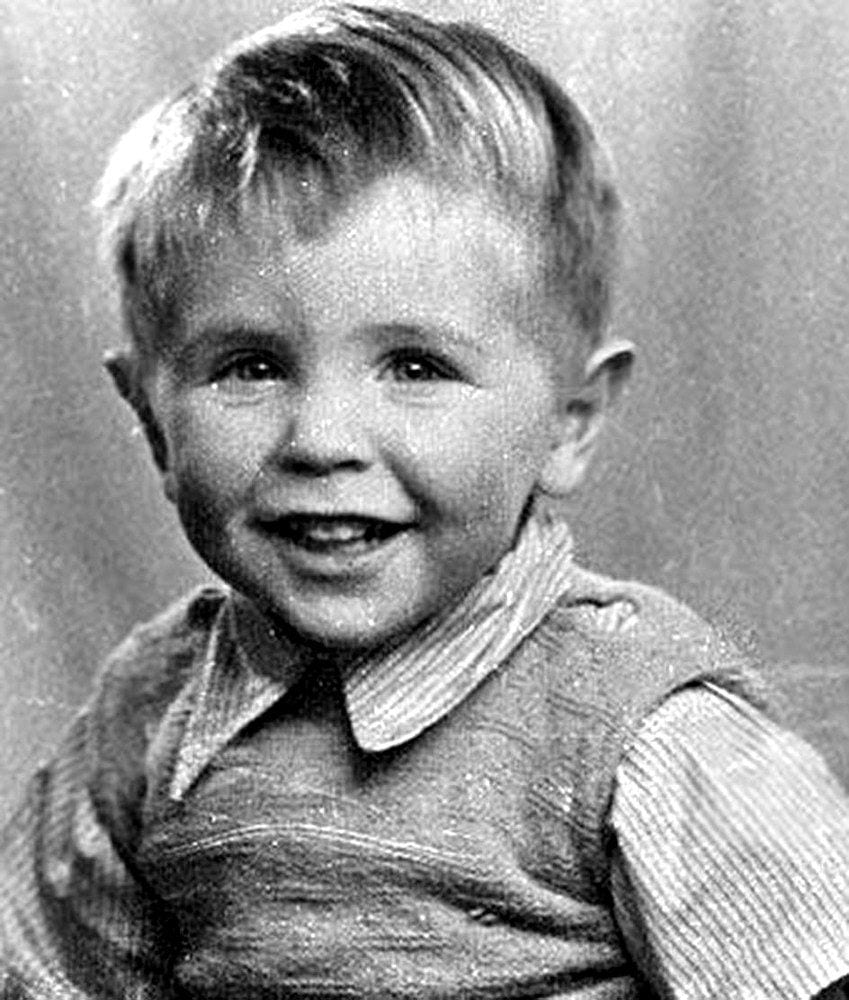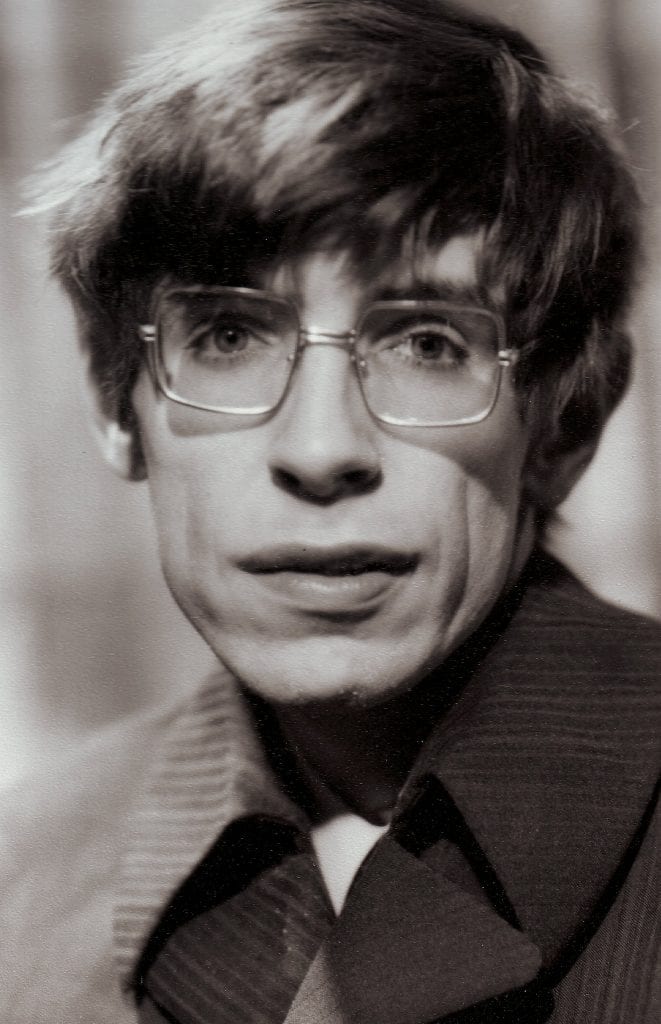Among the many physicists that have existed, there is one man who has lived an unprecedented life, Stephen Hawking. His name has been celebrated in the world of science for his groundbreaking contributions and theories. Being nicknamed the ‘Modern Einstein’, Hawking extended Einstein’s great work in the Theory of Relativity. Despite living his life constrained to his wheelchair, his razor-sharp mind, strong humour, and various studies defined his life which is an inspiration to many people. Having been listed among the best minds and physicists in the world along with receiving several honours, Hawking had a journey that deserves detail. On his 79th birth anniversary, let’s explore the education and life of Stephen Hawking from the Theory of Relativity to the Theory of Everything.
“My goal is simple. It is a complete understanding of the universe, why it is as it is, and why it exists at all.”
This Blog Includes:
The Journey to the Black Hole

Stephen William Hawking was born in England on 8th January 1942 to Frank Hawking and Isobel Hawking. For his primary and secondary school years, he went to Byron House School and then attended St Albans School. Hawking enjoyed playing board games with his friends and also built a computer from parts of the clock, an old telephone switchboard, and other recycled parts with the help of his maths teacher. Initially, Hawking wasn’t academically competent and had difficulty in learning to read but soon showed aptitude in Maths and Science.
Graduate and Postgraduate Studies

After being awarded a scholarship at the age of 17, Stephen Hawking began his undergraduate studies at Oxford University. Due to his aptitude in Mathematics, he found the academic subjects ‘ridiculously easy’ and got bored in the initial year. Soon he clung with a few friends and started developing an interest in classical music, science fiction, and also joined the Oxford Boat Club. However, it became challenging when it came to his final Exams. He decided to skip factual answers and focused on theoretical answers only. This put him on the margin between receiving first-class honours which was a condition of acceptance for his graduate studies at the University of Cambridge. He impressed the viva examiners and received a first-class BA honours degree in Physics.
Stephen Hawking began his graduate studies under the supervision of William Sciama whose training he found lacking in a few areas. In this period, he started experiencing symptoms of motor neuron disease (amyotrophic lateral sclerosis). This led him to lose hope in continuing his studies but since the disease progressed slower than predicted, he returned to continue his education.
Spacetime Singularity and Black Holes
During this course, there were hyped controversies related to the Big Bang Theory and other topics in Physics. Stephen Hawking based his ‘Hawking theses’ on Roger Penrose’s theorem of a spacetime singularity in the centre of black holes. He obtained his PhD degree in Applied Mathematics and Theoretical Physics. After collaborating with Penrose, Hawking published proof for the general theory of relativity and also postulated the second law of black hole dynamics.
Further, Hawking found contradictions with the second law of black holes which showed results that black holes emit radiation and created an equation that involves the speed of light along with Newton’s constant and other symbols. It was known as the ‘Hawking Radiation’ which was also perplexing for Hawking himself initially. This was acclaimed by various physicists and scientists which made him renowned. He also wrote various books using his vocal synthesizer such as A Briefer History of Time, The Universe in a Nutshell, On the Shoulders of Giants, etc.
“One cannot really argue with a mathematical theorem.”
Explore the Education of Albert Einstein!
Defying the Odds with ALS
It was at the age of 21 when Stephen Hawking was given the unfortunate news of a life expectance of two years after being diagnosed with a degenerative motor neuron disease (ALS). A few years later, his physical abilities worsened and he relied on crutches to walk. He slowly lost his motor-skills which led to a setback in his creative thinking. However, he later stated that,
“By losing the finer dexterity of my hands, I was forced to travel through the universe in my mind and try to visualize the ways in which it worked.”

In the latter years of his life, Hawking’s speech declined and soon he was understood by means of a machine that translated according to his brain patterns or facial expressions. Despite having such extreme complications, he decided to show up confidently at seminars and public places and even attended questions with humour and wit. Hawking passed away on 14 March 2018 at the age of 76 due to ALS.
“It is a waste of time to be angry about my disability. One has to get on with life and I haven’t done badly. People won’t have time for you if you are always angry or complaining.”
Legacy and Lessons
Even though Stephen Hawking had his struggles, he was amongst the coolest physicists in the world! He made many appearances and cameos in the pop culture industry and a few of them include Star Trek, Doctor Who, The Simpsons, Big Bang Theory, etc. He even stated that “almost as many people know me through The Simpsons as through my science!” Hawking also permitted the use of his copyright voice for his biography The Theory of Everything.

Stephen Hawking has not only given the world many lessons in numbers and theories but has also given us life lessons to follow.
- His achieving a PhD while battling a life-threatening disease shows us how courage and hope are essential to keep moving forward. He never decided to give up and let his disease take the better of his life.
- Stephen Hawking’s ‘insatiable curiosity’ is what pushed him to keep exploring the various components of the universe. He kept his vigour strong which helped him to always be on the go.
- Hawking stated, “Intelligence is the ability to adapt to change.” He faced multiple challenges and adapted to whatever life gave him. He knew how to survive amidst the complexities and uncertainties.
- He is known for his hilarity and has always dealt with life positively. Hawking is a clear example of “When life gives you lemons, make lemonade”. He certainly knew how to optimize and look at the better side of life.
To conclude in Hawking’s words, “Remember to look up at the stars and not down at your feet. Try to make sense of what you see and wonder about what makes the universe exist. Be curious. And however difficult life may seem, there is always something you can do and succeed at. It matters that you don’t just give up.” With this, we salute the exceptional man that was Stephen Hawking who truly unlocked the universe and brought us many discoveries as well as life lessons to live by! Want to pursue a degree in Physics? Leverage Edu is here to help you find the best program and university and follow the fascinating and intellectually rewarding path of a Physicist. Sign up for a free session right away.

 One app for all your study abroad needs
One app for all your study abroad needs





















 45,000+ students realised their study abroad dream with us. Take the first step today.
45,000+ students realised their study abroad dream with us. Take the first step today.

